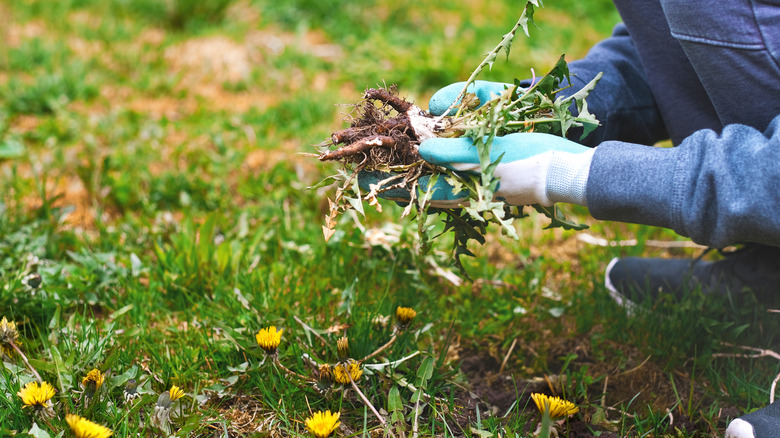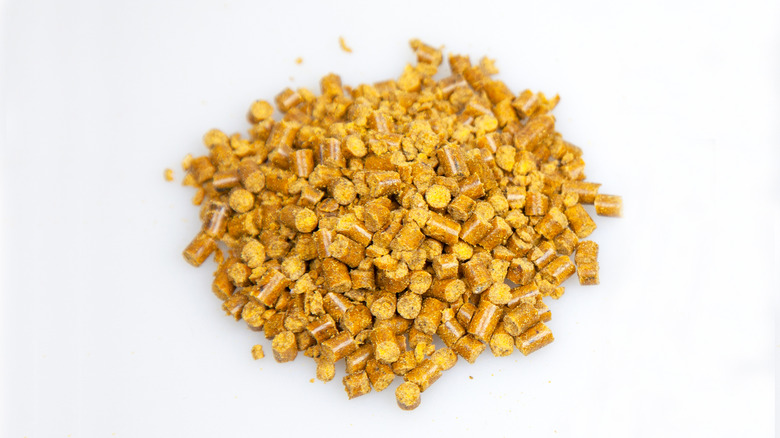Does Pre-Emergent Weed Prevention Kill Existing Weeds? Our Lawncare Expert Weighs In
Choosing the right herbicidal products for your lawn can be an overwhelming decision to make on your own. If preventing weeds is your main goal, you might be tempted to choose a pre-emergent weed prevention product. But will these herbicides also work on existing and breakthrough weeds? Not quite, but that doesn't mean they aren't useful for your lawn. Every tool — including pre-emergent weed prevention — has its place in the process of proper lawn maintenance. When it comes to the how and why, we always recommend deferring to an expert. Luckily, we were able to exclusively speak with lawncare expert Rob Palmer, Brand President of Lawn Squad to get a better idea of the role of weed prevention products.
First, it's necessary to decide whether you'll use herbicides at all or dedicate your time to continuous manual weed-pulling. Depending on the size of your lawn, the busyness of your schedule, your personal priorities, and your physical abilities, manual weeding alone may just not be a feasible option. Not to mention the fact that hand-pulling lawn weeds can actually spread their seeds. If you're willing to consider an herbicidal option, we've got the expert advice for you.
Pre-emergent vs post-emergent herbicides
Once you make the decision to take advantage of herbicides to manage your lawn's weeds, the question becomes which type of weed-killing product to reach for. For many lawn owners with established turf, pre-emergent weed preventatives seem like a suitable option. Many of these products — especially those labeled "natural" — come in the form of corn gluten pellets and carry no risk of damaging grass. Does this relative safety mean, however, that a pre-emergent pesticide is useless for killing weeds that have already emerged?
"In a literal sense," Rob Palmer exclusively explains to House Digest, "pre-emergent herbicides do kill weeds." However, this action takes place before the weed has emerged from the soil, unlike post-emergent herbicides, which attack weeds after they've emerged. "It is necessary to apply them before weed seeds begin to germinate," Palmer elaborates. "Once weed seeds are beyond the initial germination stage, many pre-emergent products become ineffective at controlling them." So, what is a lawn enthusiast to do? Well, you may need to use multiple products to end up with the easy-to-manage turf of your dreams — including a pre-emergent herbicide for weed prevention.
How to balance herbicides for a healthy weed-free lawn
If your goal is to maintain a lawn that doesn't require hours of weeding, the best approach to take might be combining a pre-emergent herbicide with a post-emergent one in order to attack weeds from every possible angle. You'll also want to keep in mind that while pre-emergent weed preventers won't negatively affect your existing grass, they can inhibit the growth of new grass seed. "It is recommended to avoid using pre-emergent products when or where you are planting new seed to avoid reduced growth of the new desirable grass seed," Rob Palmer exclusively told House Digest.
When you aren't planting new grass seed, however, properly applied pre-emergent herbicides can greatly reduce the number of weeds that survive to the point of requiring a post-emergent solution or manual removal. Palmer recommends speaking to a lawncare professional in your area to get advice on application timing and specific products that can benefit your unique lawn's weed management challenges. "Lawncare experts who specialize in this field can help tailor a plan to fit your lawn's needs and provide proper application of these products to keep your lawn happy and healthy all year."


